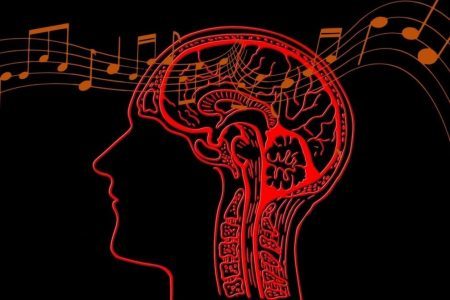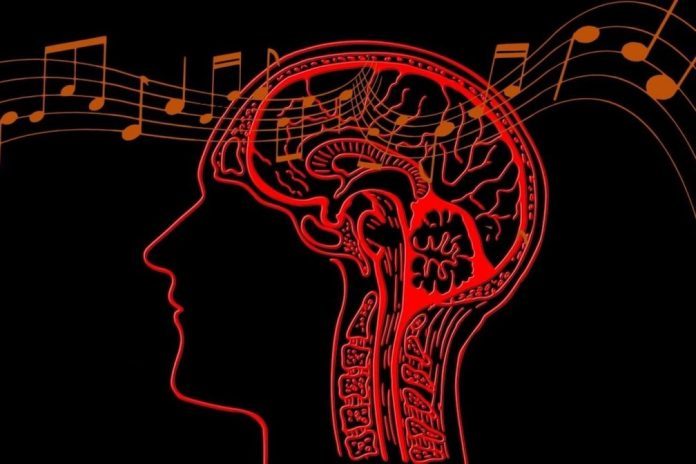
Music is a universal form of expression that transcends cultural, linguistic and social barriers. It has the power to evoke deep emotions, awaken memories and create connections between people. Furthermore, music also plays a significant role in mental health by providing stress relief, improving mood and promoting emotional well-being. In this article, we will explore the impact of music on mental health and how it can be used as an effective therapeutic tool.
The Science Behind Music and Mental Health
The link between music and mental health has been the subject of study and research over the decades. Scientific studies have shown that music can positively affect the brain and emotions in several ways:
1. Reducing Stress and Anxiety
Music has the power to calm nerves and reduce levels of cortisol, the stress hormone. Listening to soft, relaxing music can be an effective strategy for relieving anxiety and promoting a state of relaxation.
2. Stimulating Dopamine Release
Dopamine is a neurotransmitter associated with pleasure and the feeling of reward. Listening to music we like activates the brain's reward system, releasing dopamine and improving our mood.
3. Improved Focus and Concentration
Music can also improve concentration and productivity. Many people find benefits from listening to music while working, studying, or performing tasks that require attention.
4. Emotional Expression
Music offers a healthy way to express emotions. In this way, composers and listeners often find in music a way of dealing with complex and difficult feelings.
Music as Therapy
In addition to the general benefits of music for mental health, it is important to highlight that music therapy is a formal approach that uses music as a valuable therapeutic tool. Furthermore, music therapists are highly trained professionals who collaborate with individuals to achieve specific goals related to mental, emotional or cognitive health.
Applications of Music Therapy
- Depression Treatment: Music therapy can help identify and express emotions, as well as improve mood and self-esteem.
- Stress Management: Musical relaxation techniques, such as using soothing music and sound meditation, are often used to reduce stress.
- Support for Autism Spectrum Disorder: Music therapy has been shown to be beneficial in developing social skills and communication in individuals with autism.
- Physical and Cognitive Rehabilitation: Music can be used to help recover from physical injuries and develop cognitive skills.
Music Therapy Success Stories
Countless individuals have reported remarkable improvements in their mental health through music therapy. A notable example lies in the case of patients with Alzheimer's disease. Indeed, music can evoke old memories and provide deep emotional comfort to people facing this condition.
Incorporating Music into Your Daily Routine
You don't need to be an expert in music therapy to reap the mental health benefits of music. Here are some simple ways to incorporate music into your daily life:
1. Create Therapeutic Playlists
To better organize your musical preferences, you can create playlists that match your mood or the emotions you want to experience. For example, have a relaxing playlist ready for stressful moments, and, on the other hand, an upbeat playlist ready for when you need a boost of energy.
2. Practice Mindful Listening
Dedicate precious time to listening to music mindfully. First, gently close your eyes, breathe deeply, and then allow yourself to fully immerse yourself in the rich musical experience unfolding before you. Feel free to let yourself be carried away on this sonic journey, and as you do so, pay meticulous attention to the details that make up the music, such as the melody, harmony, and depth of the lyrics.
3. Play an Instrument
Learning to play a musical instrument is a rewarding way to engage with music. Even if you're a beginner, playing a few notes on a guitar or keyboard can be a therapeutic experience.
4. Try Therapeutic Dance
Dance is a form of bodily expression that combines movement and music. Dancing can release emotions, improve mood and promote connection with the body.
Music is much more than a form of entertainment; it is a powerful tool for promoting mental health. Whether through mindful listening, creating therapeutic playlists, or exploring music therapy, music can play a significant role in managing stress, relieving anxiety, and improving emotional well-being. Therefore, do not underestimate the healing power of music – allow yourself to immerse yourself in this sonic universe and discover how it can transform your life for the better. After all, the harmony that heals is within reach of all of us, we just need to give music a chance.
